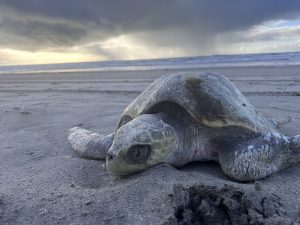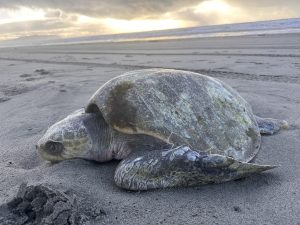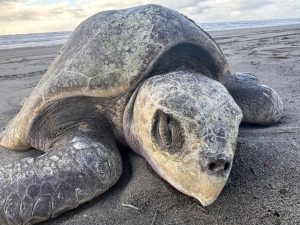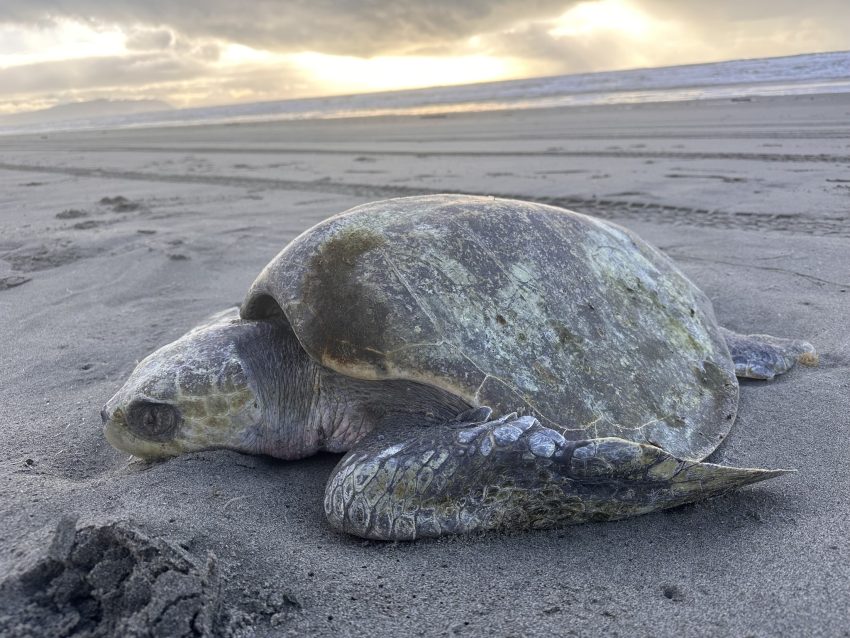(From Seaside Aquarium’s Facebook page 12/31/24)
Seaside Aquarium was alerted yesterday afternoon, December 30, 2024 of a sea turtle on Sunset Beach near Fort Stevens State Park. Unfortunately, the 40-pound olive ridley sea turtle was already dead upon washing ashore. Recent storm systems coming up from the south are responsible for the recent strandings.
EDITOR’S NOTE: A loggerhead turtle washed up on Short Beach near Oceanside on December 29th, requiring Netarts Oceanside Fire & Rescue to develop a special turtle carrier to get the turtle to the Oregon Coast Aquarium for care. Unfortunately, the aquarium reported to the Pioneer yesterday, December 30th that the turtle did not survive.
(Photos by Tiffany Boothe, Seaside Aquarium)



Essentially, sea turtles forage for food in an offshore, warm water current. Weather conditions (such as a long, constant string of south-southwesterly winds) can drive the warm water current (and therefore the turtles) further north and closer to shore than normal. When the weather conditions suddenly change, the warm waters quickly dissipate and the turtles find themselves trapped in the colder waters of the natural currents running along the Oregon and Washington Coasts. When this happens, their bodies slow down and they become hypothermic.
When found on the beach, it can be difficult to determine if a sea turtle is dead or alive. A turtle suffering from extreme hypothermia can be unresponsive to touch and have a heartbeat so slow and weak that it is difficult to detect. Most sea turtles found on Oregon and Washington shores do not survive, even if found and recovered quickly. Those that do live are taken to one of two licensed rehab facilities on the Northwest Coast; the Oregon Coast Aquarium or the Seattle Aquarium. When stabilized (which, if successful, can take up to a few weeks), the turtle is transferred to a center in California, where it will be released back into the wild.
Though the Oregon Coast may see as many as five different species of sea turtle, the most commonly found is the Olive Ridley (Lepidochelys olivacea).


